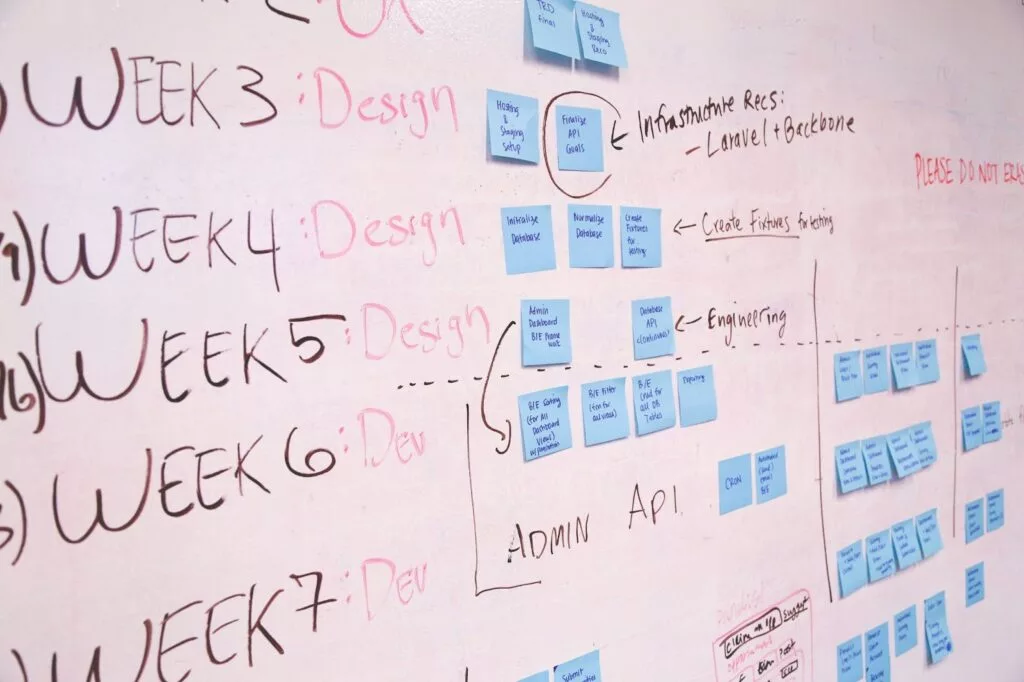
Regardless of the field or specification, any company needs a quality structure. This applies not only to the team but also to the style of work. Modern management science has several techniques, approaches, and frameworks that make project management as productive and effective as possible. Here you can find a list of useful terms to use in the context of project management.

Agile (compare: Waterfall) – an approach to project planning and management by dividing one large task into numerous subtasks – sprints. Among the advantages of such a system is the ability to quickly and accurately find the moment at which any problem occurred and solve it promptly. In addition, it is much easier to adjust the work by presenting and changing small elements of the process than one large cycle. In contrast to Agile, many companies use the Waterfall management methodology. The main difference between the two is that the former makes the tasks adaptive and flexible, while with Waterfall, the tasks are aligned linearly and executed one after the other.
Brief – a kind of project scenario. It contains a brief description of all the stages of the process and its key points. Creating a brief for the project helps to focus all efforts and resources within the assigned areas. If you’ve never written one or hesitate what to write about, you’re welcome to use our instructions on outlining a perfect brief.
Business logic – a decision-making algorithm based on the study of the processes of functioning of the business world. It explains the laws of the existence and interaction of objects in the business environment. It’s especially important to write out business logic in detail when designing an app.
Framework (project management framework) – a set of universal processes, templates, mechanisms, and tools necessary for the implementation of effective project management at all its stages. In other words, the framework is a clear structure for the implementation of the project, regardless of its content. To implement any project management framework correctly, many companies use project management and collaboration tools. Check our comparison of the most popular ones to find the right app for your business.

Objective – the final point of the whole project is what you plan to achieve. There are several techniques for formulating the right objectives. One of them – SMART – says that the objective should be: Specific, Measurable, Achievable, Realistic, and delivered on Time.
Project estimate/quote – preliminary assessment of the general state of the project flow. This allows not only to check the compliance of the implemented actions with the final objective but also to identify and solve any problems at an early stage. Keep in mind that this is always just an estimate: the precise cost of a project is usually calculated during the following briefings and scope-defining meetings.
Project management – the overall process of organizing the implementation of the project, supported by a clear structure, knowledge, skills, experience, methods, timings, and competent allocation of resources. The main goal of project management is to provide the necessary actions to achieve the final objective on time.

Scope – an assessment of all necessary elements of the project and metrics that determine its achievement. In fact, it is a set of actions and decisions that must be performed in order for the project to be considered successfully completed. We always work in close connection with the client to make sure we define the scope correctly at the beginning and stick to it during the following operations.
Scrum – a project management technique that is based on transparency in communication, collective responsibility, and continuous progress. In a nutshell, well-organized teamwork. The term is borrowed from rugby, where a scrum is a formation of players.
Sprints – the elements of Agile or Scrum project management approaches that divide the project plan into several parts. We work by sprints, thus reducing the stress for both sides of the deal during the scope discussion phase and design/development. Within a project, there are usually numerous sprints, each of which has a clear goal, tasks, and deadlines. Sprints help to facilitate the management of various aspects of the project. Both the team and their client have better control of what kinds of work are being done.
Tasks – actions that need to be done to achieve the project objective. Tasks are the steps on the way to the final result of the work.

Warranty (warranty phase) – the period in the project management life cycle before project closure, when the team that worked on the project continues to be responsible for the quality of work and is obliged to eliminate any defects found after the release. Ordering a project from Belov Digital, you have 30 days of guaranteed fixes of any issues with your site.
Waterfall (compare: Agile) – an approach to the organization of work that adheres to a linear and sequential order of tasks. While the previous action has not been completed, no one starts the next one, so as not to return to previous tasks – this is how the waterfall management framework works. The Waterfall system is the opposite of Agile project planning, in which tasks can be performed simultaneously at different stages of the project’s existence.

If you’d like to learn more about WordPress and the tips and tricks that will help you use it effectively, take a look at our blog. We regularly post useful articles on WordPress for beginners, web design and development in general, and general recommendations to assist you in making the optimal choice.













